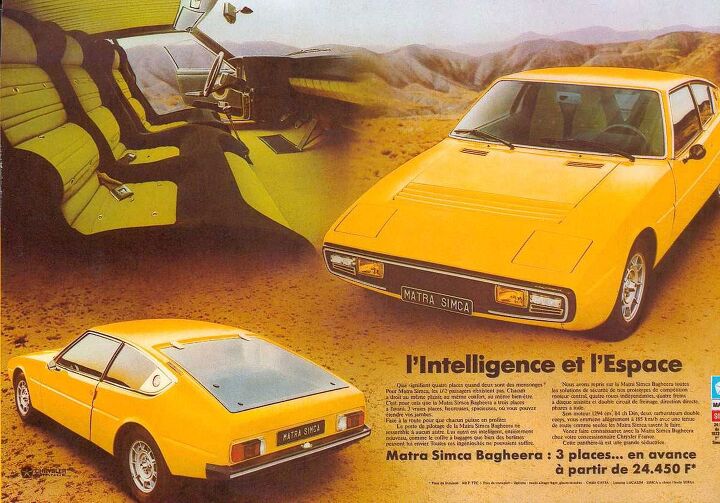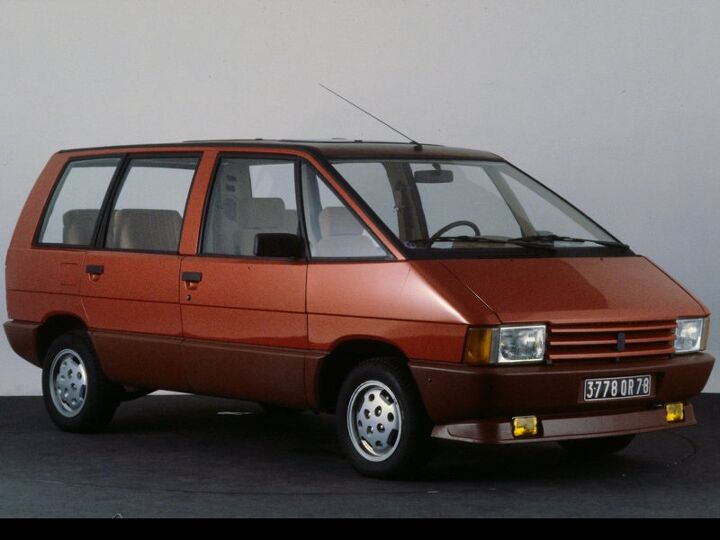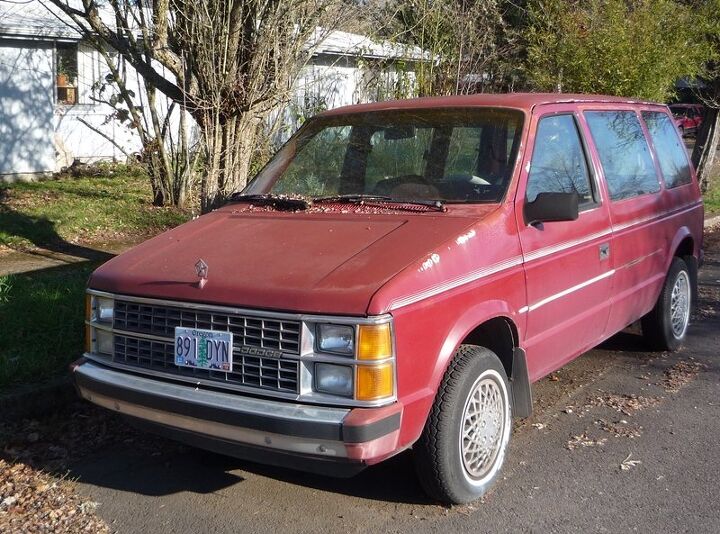#espace
Matra: The Unconventional and Unexpected French Superhero
The French have always had a penchant for doing things a little differently. Take Matra, for example.
The Matra R530 is a medium range air-to-air missile normally fitted to the Dassault Mirage fighter jet.
The Matra M530, on the other hand, is a mid-engine sports car. Of course, that was no coincidence, as the first real Matra sports car was named after the missile built by the same company’s weapon division.
Yet the company’s abnormal conventions didn’t end at naming a mid-engine sports car after an infrared homing missile, making Matra one of the more interesting — albeit obscure — footnotes in French automotive history. The company went from producing front-line weaponry to winning the Formula One title in five years, won Le Mans three times on the trot, and produced some of the first minivans. Yet, at the height of their power, they hung up their automotive jacket and today they produce….bicycles?
Who Are You Calling 'Mini'? The History of Vociferous Vans
There comes a dreaded moment in many automobile enthusiasts’ lives when the reality of having a family and the need for practicality outweighs all other considerations.
Enter that dreaded “V” word.
Getting a van — especially a minivan — is for many the automotive equivalent of getting neutered. You’ve given up, capitulated. Your desires to apex corners and outrace sports cars are now parked firmly in the third-row tier of importance, and haulin’ ass has been replaced by just hauling asses.
But getting a people-hauler doesn’t have to be all bad. In fact, there are quite a few vans people claim are “good to drive.” While I’ll take their word on such things for the time being and soldier on with my wagon addiction, let’s take a look at some more inspired options for heavy-duty hauling that made the prospect of a van actually seem quite cool.
TTAC News Round-up: Volkswagen Turns To Former FBI Chief, Renault Just 'Improving' Emissions, GM Buys Ridesharing Service
Volkswagen just tabbed a former FBI director to be the highest paid traffic cop in the universe.
That, Renault is only “improving” its emissions, GM’s big bet on ride sharing and the world’s biggest auto supplier says diesel isn’t dead … after the break!
German Environmental Group Claims Renault Van Pollutes Up To 25 Times Euro Limit
A German environmental group said Tuesday that its testing has revealed Renault’s Espace, when equipped with a 1.6-liter diesel engine, could emit up to 25 times the allowable limit of nitrogen oxides with a warm engine running on roads — or you know, the real world.
According to the New York Times, the Deutsche Umwelthilfe (DUH) didn’t directly accuse Renault of including cheating software in its cars — a la Volkswagen — but said the van polluted significantly less when the engine was cold. The results could show the schism between European testing standards — where tires can be over-inflated, doors taped up, batteries disconnected, seats removed — and real-world conditions.
Renault said in a statement Tuesday that its van complied with regulations and that tests done by researchers at the University of Bern “are not all compliant with European regulations.”
Minivan Design Origins Disputed: The Designer Of The Espace Fires Back At TTAC
In our recent 1984 Dodge Caravan Curbside Classic, we explored the origins of the minivan. The question as to who first penned the modern FWD people mover is a bit of thorny one, and one which has been argued endlessly. In that CC, I gave credit to Rootes (later Chrysler Europe) designer Fergus Pollock for his work in developing a van project that eventually ended up at Renault as the 1984 Espace. I thought I made it pretty clear that his work was specifically on a one-box approach, and that I had given him due credit for that, whereas Ital Design’s Megagamma had the vestigial hood that ended up on the 1981 Nssan Prairie/Stanza Wagon and the Chrysler minivans. But designers are (rightfully) a sensitive and protective bunch, and I got a rather terse e-mail from Mr. Pollock setting the record (somewhat) straight(er).
Curbside Classic: 1984 Dodge Caravan
There’s nothing truly original in the car business. Everyone begs, steals and borrows from everyone else. Or sometimes, the same (and usually obvious) idea ferments for years in various heads or companies, and then suddenly appears in the same format at the same time in totally different places. How about the modern FWD mini-van? It first bubbled up in two totally different branches of Chrysler, sat for years,and then suddenly sprang forth, one in the US, the other in France, both at the same time. Coincidence, or is it just that every idea has its day in the sun? For the minivan, that would be 1983. In France, it was the Espace; in the US it was the Dodge Caravan/Plymouth Voyager.




















Recent Comments